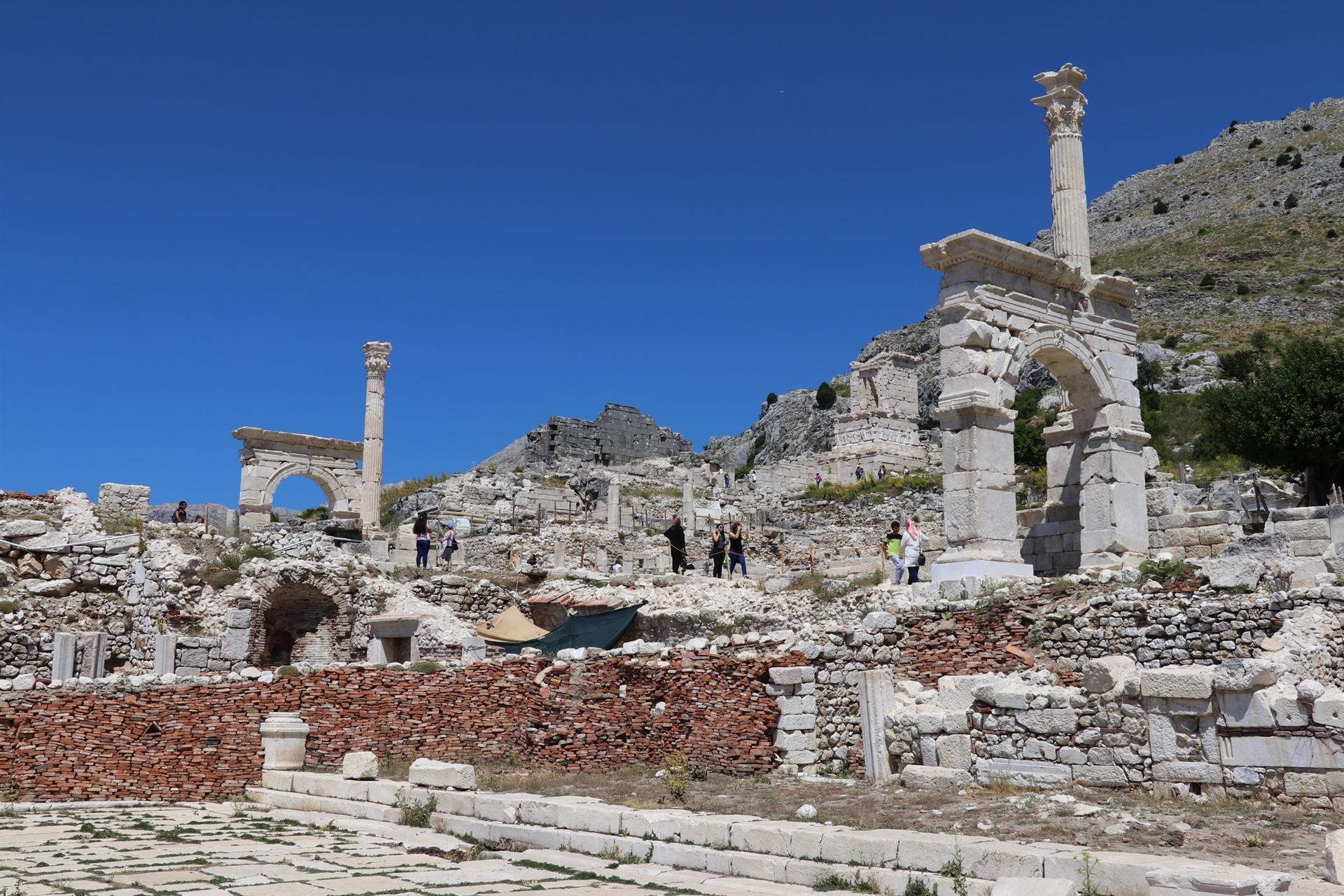
The well-preserved architecture in the ancient city of Sagalassos high up in the southwest province of Burdur’s Ağlasun district offers visitors a glimpse back into the Roman era.
Known as the “city of love and emperors,” its intriguing history is drawing an increasing number of tourists.
More than 27,000 tourists have visited the city in the first half of 2019, marking a 58 percent increase from the same period last year.
The archeological site, perched 1,750 meters above sea level and dating back 5,000 years, is “a hidden pearl awaiting to be explored,” Ağlasun Mayor Ali Ulusoy told Anadolu Agency. It has held a place on UNESCO’s World Heritage Tentative List since 2009.
The city was discovered in the 19th century by a Brit. Excavations of the ancient city were initiated in 1989 under the leadership of Belgian Professor Mark Waelkens from Catholic University and have continued for more than 30 years.
Peter Talloen from Süleyman Demirel University in Isparta province, who joined the excavation team in 1995, said the city’s high elevation – and lack of subsequent settlements - helped to preserve its architecture and artefacts over the ages. A seventh century earthquake, ironically, also helped with the city’s preservation by covering the buildings with earth, where it remained largely undisturbed.
The buildings are excavated almost fully intact, Talloen said.
“It is a big opportunity for us, archeologists. We are able to bring the last days of the Sagalassos to light,” he told Anadolu Agency.
One of world’s highest theaters
Archaeologists have unearthed and pieced back together the city’s Antonin Fountain, agoras, Roman baths, macellum (marketplace) buildings, a heroon (shrine) with images of dancing girls carved on its walls, a library and a theater.
There had been a city at the site since the Hellenistic period (323-30 B.C.), but most of the preserved buildings date to the Roman period, Talloen said.
“This place has a title of being the most important city in Pisidia region. But despite this feature, the population of the Sagalassos had stood between 3,500 and 5,000 throughout the history,” he said.
The theater, perched 1,600 meters above sea level, is one of the highest theaters in the world and seats about 9,000 people, Talloen noted.
“Since Sagalassos was a cultural center in Roman Empire, some buildings were built larger than the population. An Anatolian nation, Pisidians, were living here,” he added.
The two most important fountains in the ancient city were the Doric fountain, which still delivers water coming from the mountains, said Talloen. The second, Antonin Fountain, is made up of 85 percent of its original stones, found by archaeologists. The fountain was opened to tourists after a renovation in 2010.
A total of 27,740 people have visited Sagalassos in the first half of 2019, according to the figures from the Burdur governorship.
The number for the same period last year was 17,548, while visitors for the whole year stood at 51,045.
Mayor Ulusoy said: “Our aim for the number of visitors is to reach 100,000 this year.”